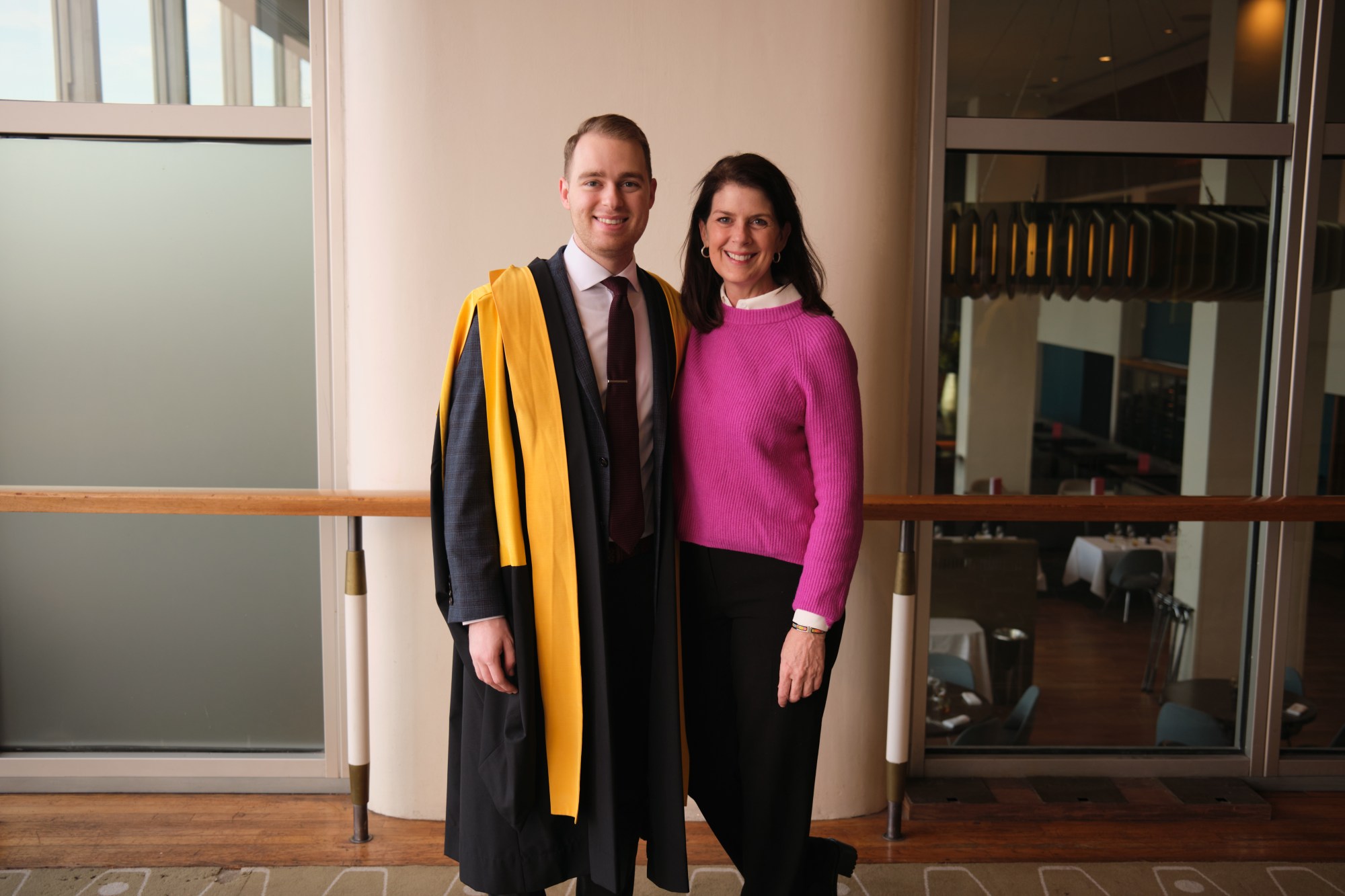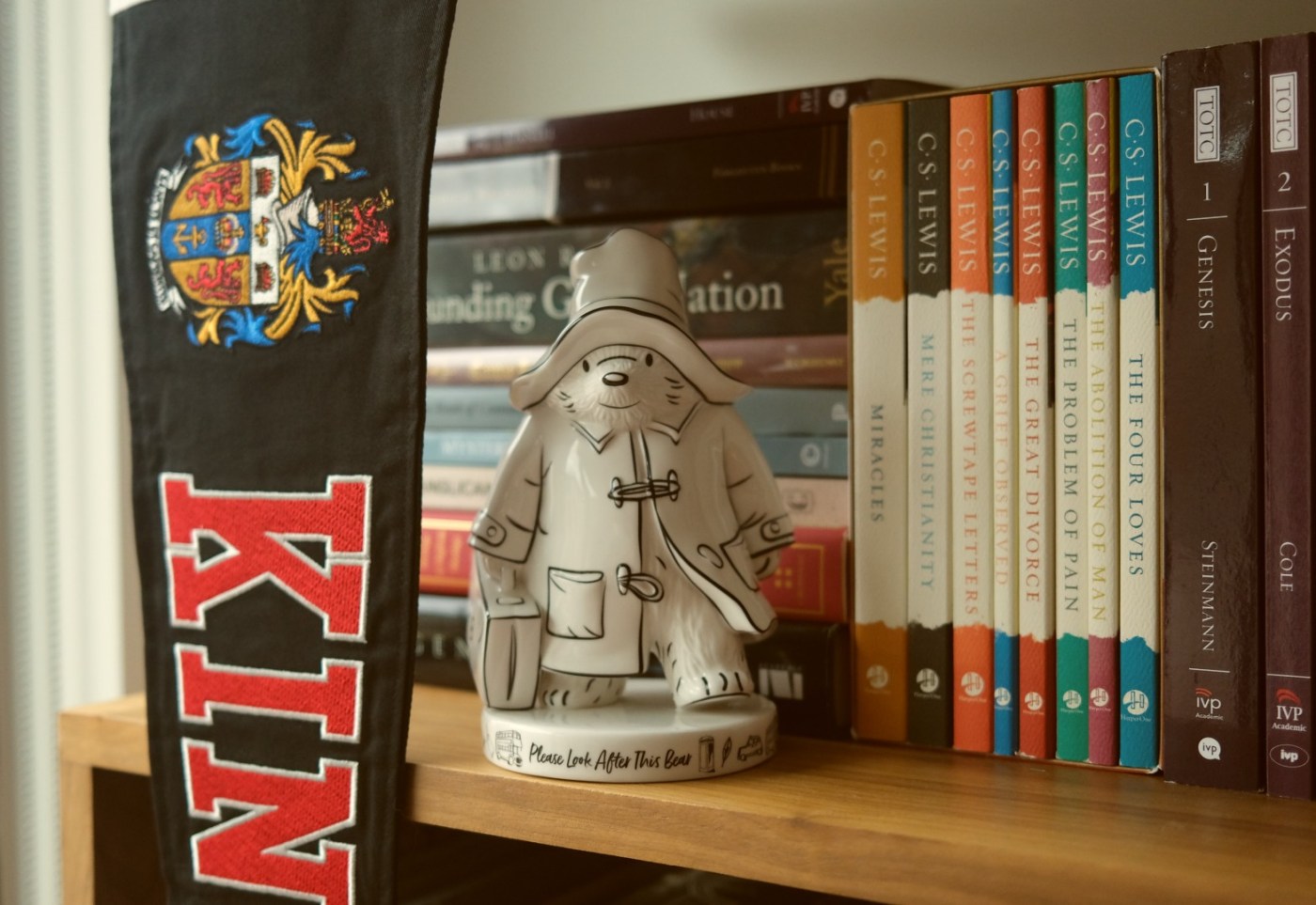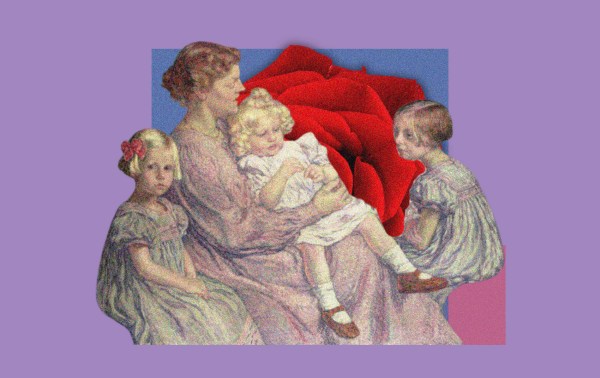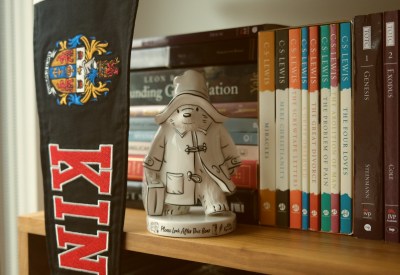When passengers first arrive on a train into central London, many are greeted by the ornate, towering clock face of St. Pancras International or the abstract modern dome of King’s Cross. Paddington Station, three miles down the road, however, shares little of its bigger sisters’ pomp. Its large iron and glass roof was probably impressive in the 1850s when it was first built, but today the station feels largely utilitarian, a forgotten relic of the city’s industrial past.
Despite its humble design, though, Paddington Station is a special place for me. If you wind across its tile floors, past the waiting trains, and through the hurried crowds towards its westernmost platform, you’ll find, hanging on the wall, a large three-faced clock. Beneath it, sitting atop a rectangular suitcase, is a small bronze statue of a bear. Paddington Bear.
Along with being Britain’s most famous mammal, Paddington has, over the years, become an important part of my relationship with my mom.
For the uninitiated, Paddington is an iconic figure in British culture and the main character in 29 children’s books and three movies. The stories follow the small, orphaned bear as he travels from “Darkest Peru” to London—sent there by his guardian, Aunt Lucy, when she moves into the Home for Retired Bears and can no longer care for him. After arriving at Paddington Station alone and in need of help, he is rescued by the Browns, a typical British family who bring him into their home and teach him the ins and outs of life in England.
Paddington’s experience in London isn’t easy; the city isn’t as sunny and the people aren’t as welcoming as they sounded in the stories he was told as a cub. “It’s not easy being somewhere new,” Paddington tells Lucy, the Brown family’s daughter, in the first Paddington film. “Things can be very different from how you imagined.” But over time, Paddington finds a family in the Browns and a home away from home in London.
The love my mom and I share for Paddington began in 2018 when, on the eve of my own departure to London for a college semester abroad, we watched both films—the first at home, and the second at a theater on opening night. By the time the credits rolled, my mom was crying. It had been a difficult time for our family—first, my sister and I had left for college, then a year after that, my father had died of cancer. And now, I was leaving again, even further away. For both of us, the films were a picture of the new friends and experiences that, even after hardship, an adventure in England could bring.
But it was several years later when I returned to London—this time with a one-way ticket—that Paddington took on a deeper meaning.
During my five months as an exchange student in London, I had become enamored with the city and promised myself that, one day, I’d make it a home. Three years later, that promise would be fulfilled. After two unsatisfying years working for a bank in the United States, I was accepted into a political economy master’s program at King’s College London. The program offered me a chance to pursue a career I found more meaningful, and—more importantly—would let me live and work in London.
However, like Paddington, my move to London was not what I imagined. Only three weeks before my move, I had been diagnosed with a chronic pain condition that had quickly taken over every aspect of my life. I struggled to eat, could barely sleep, and found it almost impossible to spend more than an hour at a time outside of my home. While the condition was not life-threatening, it was poorly understood, difficult to treat, and, for many people, completely disabling.
Despite the pain, the thought of abandoning my move to London was out of the question. I would find some way to get through it, my mom assured me, even though we weren’t entirely sure how. But, by the time I boarded my one-way flight to England, I was at the lowest point in my life—both physically and mentally. I needed support more than ever, and I was on my way to a country where not a single person even knew my name.
When I arrived at Paddington Station, like the small bear from Darkest Peru, I arrived alone and in desperate need of a family.
By then, I didn’t think it would be possible for me to stay in London for long, let alone excel in school, make friends, or engage with the city. Physically, I felt hopeless. My pain was worsening day after day, and I was pouring what little energy I had into navigating a new and inept medical system that seemed determined to give me as few treatment options as possible.
The mental side was even worse. Anyone who has experienced chronic illness or a life-altering accident has likely felt something similar. We all have a vision of what we hope our lives will look like—building a career, getting married, and raising a family. But in an instant, that paradigm can shift. Your foundational assumptions about who you are and what you value shatter, and the future becomes a very murky and uncertain space. It’s an uncomfortable, and lonely, place to be.
The experience was also harrowing for my mom. She was sending her kid across the ocean, not knowing what awaited me on the other side, and for the first time in her life, she was helpless to give me the support I needed. She felt, she said when I asked her, a bit like how Aunt Lucy felt when she hid Paddington on a ship destined for England, hoping that someone would be there to take care of him on the other side.
In the stories, when Aunt Lucy says goodbye to Paddington, she hangs a small paper tag around his neck, scrawled with the words “Please look after this bear.” The tag is inspired by those given to the thousands of British children who, during the Second World War, were evacuated from London into small towns and villages where they would be better protected from the falling bombs of the Luftwaffe. “Long ago, people in England sent their children by train with labels around their necks, so they could be taken care of by complete strangers in the countryside where it was safe,” Aunt Lucy tells Paddington. “They will not have forgotten how to treat strangers.”
Those words, “Please look after this bear,” took on a special meaning for my mom as I crossed the ocean to start my own life in London. There were things that I would need—support, care, a family—that she could no longer give me. Instead, she was sending me off with faith that someone would do what she could not.
“That little tag was like my prayer,” my mom told me later. “God, please look after this bear. I’m sending this kid off to this far away place where I can't reach him.”
On her first trip to visit me in London, my mom bought two Paddington Bears: a small stuffed bear and a keychain. The stuffed bear she placed on the long wooden mantel in my bedroom, and the keychain she kept for herself. The symbolism was unspoken—but we both understood it. During the many nights when my pain kept me from sleep, I would stare at that bear as a reminder that, even though I was far from home, not a second went by that my mom wasn’t thinking of me 4,000 miles away. If the worst came to worst—if I had to leave London, return home, even go on disability—she would be there for me.
But worst didn’t come to worst, and eventually, my mom’s prayers were answered. Paddington’s family came in the form of the Browns, and mine came in the form of a church. One Sunday morning, I wandered through the doors of a brown-bricked schoolhouse in the South London neighborhood of Waterloo, where a small nondenominational congregation met each week. The room was full of young Londoners from every corner of the world—American and Canadian runaways, a pack of adventurous Singaporeans, and more South Africans than anyone could count.
I couldn’t predict it at the time, but over the following two and a half years, those people would become my family. They took me in as one of their own and walked with me through the ups and downs of illness and recovery. They prayed with me, cried with me, celebrated with me, and changed me. They became close lifelong friends. They, at least, had not forgotten how to treat strangers.
When I arrived at Paddington Station, the first moments of my time in London, I was at my lowest—wrecked by illness and anxious about my future. But when I stepped on the same platform several years later to leave the city—once again, with a one-way ticket—I did so with a master’s degree in hand, dozens of new friends, and some of the best memories of my life.
None of that would have been possible without my mom and without the foundation of love she provided me. It was because I knew she was there for me that I even had it in me to build a new family in a new country. It was her love—not just during that period, but for the 23 years leading up to it—that carried me through that time.

Last month, my mom flew to Washington, D.C., for a weekend visit. It’s been a year and a half since I left London to start a new adventure with The Dispatch, and almost two years since my illness went into a miraculous remission. While she was in town, we had dinner at Amazonia, a wonderful Peruvian restaurant. And then we went to see the latest Paddington movie, Paddington in Peru.
In the film, Paddington returns to South America—with the Browns in tow—in search of Aunt Lucy, who has mysteriously disappeared from the Home for Retired Bears. Paddington and the Browns trek through the Peruvian rainforest, following Aunt Lucy’s trail all the way to the gates of El Dorado. The mythical lost city turns out to be Paddington’s long-lost home—full of oranges, not gold—and there he reconnects with the community of bears he was separated from as a cub.
The movie was bittersweet for my mom. Paddington, after all, doesn’t choose to stay in Peru with Aunt Lucy and his given family. Instead, he sets back off to England. London is his home now, and the Browns are the family he’s chosen. That’s a tension, my mom tells me, that every parent feels. You want nothing more than for your kid to never grow up, to live in your house forever, and to be somewhere you can always take care of them. But at the same time, you want them to go out into the world to build a family of their own, to build a home away from home, supported by the foundation that you gave them.
Paddington’s experience, like mine and my mom’s, may have been unique in its intensity, but it wasn’t unique in its direction. Every mother and her child will, at some point, face something similar. You raise your kid, prepare them for the world, and then send them out to make their own way, trusting that others will love and care for them just like you have.
In some way, every kid eventually gets on a boat to somewhere—and each one of us has a little tag, a little prayer, hanging around our neck, tied there by our mom: “Please look after this bear.”
Happy Mother’s Day.







Please note that we at The Dispatch hold ourselves, our work, and our commenters to a higher standard than other places on the internet. We welcome comments that foster genuine debate or discussion—including comments critical of us or our work—but responses that include ad hominem attacks on fellow Dispatch members or are intended to stoke fear and anger may be moderated.
With your membership, you only have the ability to comment on The Morning Dispatch articles. Consider upgrading to join the conversation everywhere.